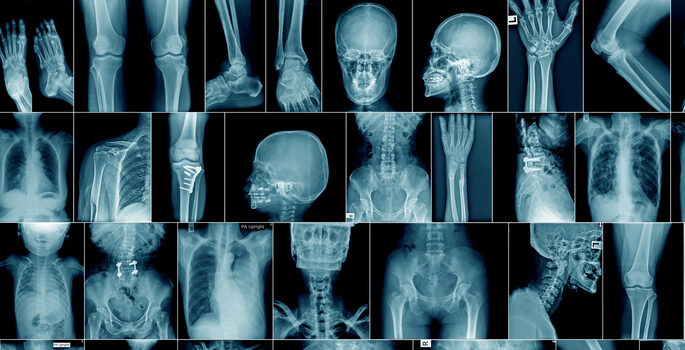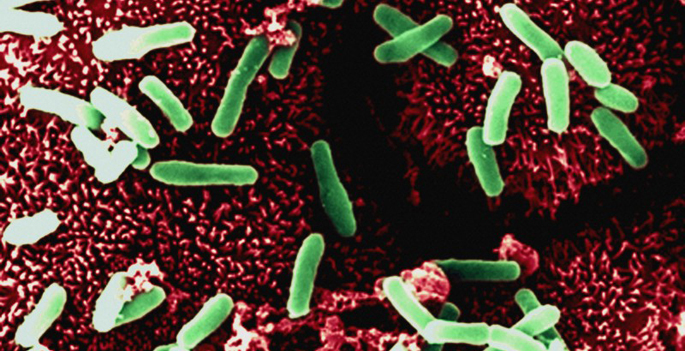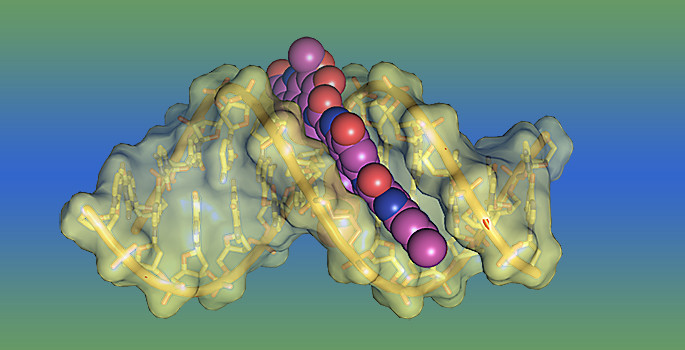Health And Medicine
-

Zinc uptake by a deadly pathogen
The increasingly antibiotic-resistant bacterium Acinetobacter baumannii requires zinc to cause infection, and Vanderbilt researchers have identified the zinc uptake system it uses. Read MoreJan 13, 2020
-

Bone matrix changes during aging
Changes to the bone matrix that occur during aging may point to novel targets for treating osteoporosis. Read MoreJan 10, 2020
-

Structural views of a C. diff toxin
D. Borden Lacy and colleagues used cryo-electron microscopy to define the structure of a C. diff toxin, providing a framework for the design of novel therapeutics. Read MoreJan 10, 2020
-

Cell fate signaling
A newly identified protein interaction that affects cell cycle regulation may be an attractive target for cancer therapy. Read MoreDec 17, 2019
-

Protein dynamics in the beating heart
To study the dynamics of structural proteins in the heart, Vanderbilt investigators generated a cellular tool they expect will be useful for screening drugs that affect heart muscle contraction. Read MoreDec 16, 2019
-

VUMC-led team isolates antibody that blocks bird flu
VUMC scientists are redoubling their efforts to help people fight off bird flu. Their focus is H7N9, one of the most dangerous of the influenza viruses that have been transmitted from birds to humans. Read MoreDec 12, 2019
-

A new anti-seizure target?
Vanderbilt neurologists have identified a protein modification that could be targeted to reduce neuronal excitability in epilepsy. Read MoreDec 12, 2019
-

Study examines HIV drug’s potential to treat Alzheimer’s
A drug used to treat and prevent HIV/AIDS is showing promise as a potential therapy for Alzheimer’s disease. Read MoreDec 12, 2019
-

New tool may speed antibody, vaccine research
Antibody discovery and vaccine development research may be on the verge of rapidly expanding with data that previously took decades to acquire, thanks to LIBRA-seq, a new tool developed by Vanderbilt University researchers and their colleagues. Read MoreDec 12, 2019
-

Gregor Mendel would be proud
A computational method that uses hospital billing codes and electronic health records can identify genetic disease cases before clinical teams do. Read MoreDec 12, 2019
-

Study reveals mysteries of critical brain receptor complex
Poorly functioning AMPARs have been linked to a wide range of neurological and psychiatric disorders including seizures, Alzheimer’s disease, major depression and autism spectrum disorder. Understanding how AMPARs are formed and operate is essential for the rational design of pharmacological compounds that, by tuning AMPAR activity up or down, could improve treatment of these conditions. Read MoreDec 5, 2019
-

Genetic screen in worms reveals critical step in insulin synthesis
The identification of a protein important for insulin synthesis may hold clues for understanding the pathogenesis of diabetes. Read MoreDec 4, 2019
-

Study finds ‘frozen’ fear response may underlie PTSD
To explore how fear becomes entrenched, VUMC researchers traveled down the precise neuronal pathways in the brains of mice that trigger fear responses, and which normally extinguish the behaviors once the danger has passed. Read MoreNov 27, 2019
-

Study explores potential new class of antidepressants
Researchers at VUMC have taken a major step that could ultimately facilitate development of a new class of antidepressants which may relieve symptoms more rapidly and effectively and with fewer side effects than current medications. Read MoreNov 21, 2019
-

Getting the goods on obesity
Obesity and two post-operative complications linked with it have associated genetic variants in common, suggesting that obesity may be the culprit. Read MoreNov 19, 2019
-

Understanding cell division
Vanderbilt researchers have uncovered another piece in the puzzle of how cells divide — a process that goes awry in cancer cells. Read MoreNov 18, 2019
-

Blueprint for treating epilepsy
Structural details of a protein that is essential to normal brain function could improve treatments for epilepsy and other seizure disorders. Read MoreNov 14, 2019
-

RSV transmission in the Middle East
Understanding how RSV is transmitted, which strains dominate and how new strains emerge around the globe will guide better vaccine and anti-viral drug design. Read MoreNov 14, 2019
-

Endotoxin shock protector
A novel tool developed by Vanderbilt scientists protects animals from endotoxin shock and can be used for mechanistic analyses of inflammation due to microbial and other insults. Read MoreNov 5, 2019
-

How to fake a medical record
Simulated electronic health records could avoid patient privacy risks and help speed discovery. Read MoreNov 4, 2019